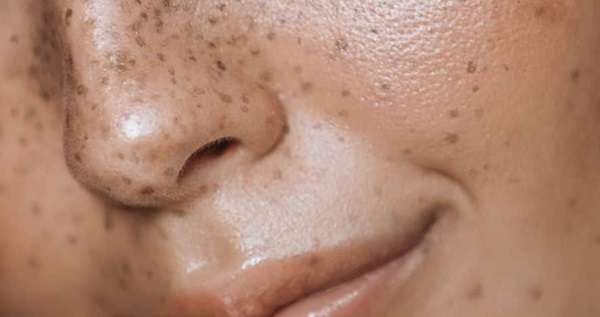Hyperpigmentation is a common skin concern that affects individuals of all skin types, including those living in Islamabad. It refers to the darkening of certain areas of the skin caused by an excess production of melanin, the pigment responsible for skin color. While hyperpigmentation is generally harmless, it can affect one’s self-confidence and overall well-being.
In this article, we will explore effective treatments and tips for dealing with hyperpigmentation in Islamabad.
Understanding Hyperpigmentation:
What is Hyperpigmentation?
Hyperpigmentation is the darkening of specific areas on the skin caused by an overproduction of melanin.
It can be triggered by various factors, including sun exposure, hormonal changes, skin injuries, and certain medical conditions.
What are the Types of Hyperpigmentation?
- Melasma: Melasma Often triggered by hormonal changes, melasma appears as dark patches on the face, typically during pregnancy or due to the use of oral contraceptives.
- Post-Inflammatory Hyperpigmentation (PIH): This type of hyperpigmentation occurs after skin inflammation, such as acne, eczema, or injury, and results in dark spots or patches.
Effective Treatments for Hyperpigmentation in Islamabad:
1. Topical Treatments:
- Hydroquinone: A skin-lightening agent that inhibits melanin production, hydroquinone can be used under the guidance of a dermatologist to reduce hyperpigmentation.
- Retinoids: These vitamin A derivatives help increase cell turnover and promote a more even skin tone.
- Azelaic Acid: Known for its brightening and exfoliating properties, azelaic acid is effective in treating hyperpigmentation.
2. Chemical Peels:
Chemical peels involve the application of a chemical solution to exfoliate the top layer of the skin, revealing a smoother and more even complexion.
Dermatologists in Islamabad offer various types of chemical peels tailored to individual needs.
3. Laser Treatments:
- Intense Pulsed Light (IPL) Therapy: IPL targets melanin in the skin, breaking down excess pigment and reducing hyperpigmentation.
- Fractional Laser Resurfacing: This procedure stimulates collagen production and improves skin texture, helping to minimize the appearance of hyperpigmentation.
4. Dermatologist-Guided Skincare:
Consulting a reputable dermatologist in Islamabad is crucial for effective hyperpigmentation treatment.
They will create a personalized skincare regimen, incorporating medical-grade products and professional treatments to address your specific concerns.
How to Prevent Hyperpigmentation?
1. Sun Protection:
UV radiation from the sun is a significant trigger for hyperpigmentation. Protect your skin by wearing broad-spectrum sunscreen with at least SPF 30 daily, even on cloudy days. Reapply every two hours when outdoors. Additionally, wear protective clothing, such as wide-brimmed hats and sunglasses, and seek shade when the sun is at its strongest.
2. Avoid Sunbeds and Tanning:
Artificial UV exposure from tanning beds can also lead to hyperpigmentation. Avoid using tanning beds altogether to reduce the risk.
3. Post-Inflammatory Hyperpigmentation (PIH) Prevention:
If you have a skin injury or inflammation (e.g., acne, or insect bites), avoid picking or scratching the affected area, as this can worsen hyperpigmentation. Use gentle skincare products and avoid harsh treatments that can irritate the skin.
4. Hormonal Management:
Hormonal changes, such as those during pregnancy or while taking birth control pills, can trigger melasma, a type of hyperpigmentation. If you’re concerned about hormonal-related hyperpigmentation, consult with a healthcare provider to explore management options.
5. Topical Products:
Incorporate skincare products that contain ingredients known to help prevent and treat hyperpigmentation. These can include:
- Vitamin C: An antioxidant that can help protect the skin from UV damage and inhibit melanin production.
- Sunscreen: Use a broad-spectrum sunscreen with high SPF daily to protect your skin from UV rays.
- Retinoids: These can help improve skin texture and tone, including reducing the appearance of hyperpigmentation.
- Niacinamide: This ingredient can help reduce inflammation and minimize the appearance of dark spots.
- Alpha Hydroxy Acids (AHAs) and Beta Hydroxy Acids (BHAs): These chemical exfoliants can help improve skin texture and promote cell turnover, potentially reducing the appearance of hyperpigmentation.
- Regular Skincare Routine: Establish and maintain a consistent skincare routine that includes cleansing, moisturizing, and protecting your skin from environmental damage.
6. Consult a Dermatologist:
If you have a history of hyperpigmentation or are concerned about preventing it, consider consulting a dermatologist. They can provide personalized advice, recommend suitable products, and offer treatments like chemical peels or laser therapy if needed. If you are in Islamabad you can always book an appointment with one of the best dermatologists in Islamabad.
Conclusion!
Dealing with hyperpigmentation in Islamabad requires a multifaceted approach that combines effective treatments, dermatologist-guided skincare, and preventive measures. By understanding the causes and types of hyperpigmentation and utilizing treatments such as topical agents, chemical peels, and laser therapies, individuals in Islamabad can achieve a more even and radiant complexion.

